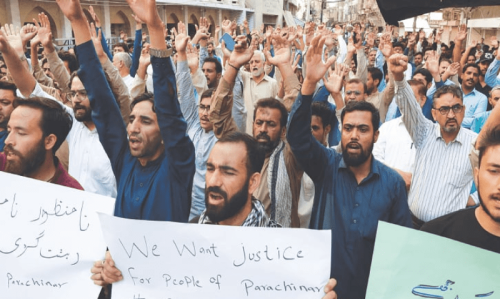THE prime minister’s views on foreign policy as spelled out on Tuesday at a conference of Pakistani diplomats in the Middle East and the Gulf deserve to be noted because of what seems to be a welcome change of emphasis in Islamabad’s foreign policy priorities. His belief in “economic diplomacy”, said Nawaz Sharif, stemmed from the fact that “foreign policy has virtually become economic policy”. For that reason, he said, his government’s foreign policy was driven by economic considerations and focused on opportunities available to Pakistan. He thus wanted the country to cash in on its relations with the Middle East and the Gulf, because of the region’s “booming energy sector, developing infrastructure, thriving services sector and … connectivity”. Speaking ahead of his visit to Iran, Mr Sharif touched upon two issues which have aroused considerable misgivings in opposition circles. One, Pakistan’s ‘special relationship’ with Saudi Arabia and Bahrain would not be at the expense of its ties with Iran; two, there was no change in Pakistan’s Syria policy, because Islamabad believed in non-interference in other countries’ internal affairs. There is no reason why the principles Mr Sharif outlined should remain confined to the Middle East and Gulf region, especially when he talks of “rebalancing” foreign policy with a view to greater integration with the world.
Pakistan’s strategic position has been utilised by the country to its immense advantage in the past. While Pakistan benefited from the massive doses of economic and military aid from the US-led West, it managed to forge friendly relations with China in moves that often aroused suspicions in the West but that nevertheless served Pakistan’s economic and security interests well. Today, more than ever, Pakistan needs to strictly adhere to a policy that aims to rectify the distortions in foreign policy. The decades-old Afghan war and the way it was handled by the military did immense harm to Pakistan’s security interests — besides leading to ugly domestic repercussions. Trade relations with India hit a major obstacle in March after a cabinet meeting to approve the MFN status for India was called off at the last minute, indicating that the levers of foreign policy lay in other hands. The year 2011 was especially disastrous because the army-led reaction to a series of incidents — Abbottabad and Salala — hurt the country’s economic and security interests and served to isolate it.
Mauled by terrorism, Pakistan needs a faster pace of development to recover the time it has lost. This entails a friendly relationship with all neighbours to open up its economy, enlarge trade and invite foreign investment. While security considerations cannot be ignored, the point to note is that there is no greater guarantee of security than a strong economy that can enable Pakistan to stand on its own feet.











































